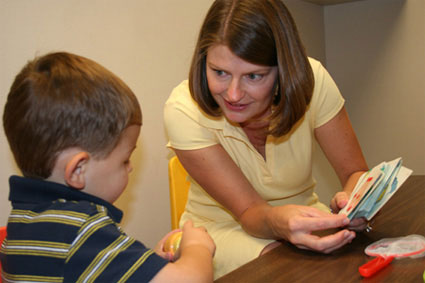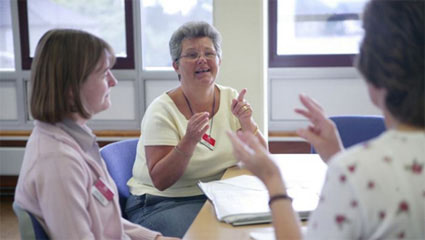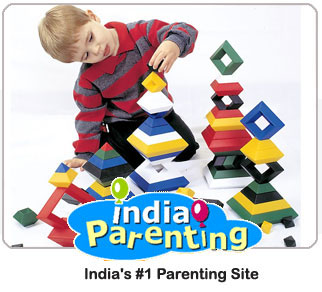Speech is the most important form of communication. Any disability in communicating is termed as speech disorder. Speech disorder is mainly due to some developmental defects but there may be other causative factors also. Hearing impairment can also cause speech disorder. Speech disorder can be easily diagnosed by the symptoms. Early treatment of speech disorder with speech therapy helps in overcoming the disorder. Read on about the speech disorder in toddlers.Speech and language disorders must not be confused although they are deeply related. Language involves expression and communication which need not be always vocal. That is, the child can still communicate using sign language. But speech disorders are caused by definite conditions.
Contributing Factors:
Have a quick look the contributing factors for speech disorder in toddlers.
Physical Factors
Since speech is actually the mechanics of language or speaking, more often than not it is some physical or birth defects that plants boulders in the progression of speaking. Cleft palate is one of them. Here an abnormal space gets formed in the roof of the mouth. This is a defect that results in the inability to pronounce certain words clearly.
Down syndrome also causes certain physical differences that lead to difficulty in producing speech.
If the child is born or has developed a nervous system issue speech disorder follows as he finds it difficult to coordinate the speech centers in the brain. There can actually be a wide array of speech problems if the nervous system is the root cause. If the Hypoglossal nerve gets damaged due to any reason, the speech becomes extremely unclear as the tongue becomes clumsy. Pronunciation gets badly affected. Cerebral palsy is another brain damage condition where the speech and language development of the toddler gets affected.
Behavioral Factors
Hearing impairment whether temporary or permanent can also cause speech disorder in toddlers. Stuttering is a common condition that goes away with age. There is another condition called ‘selective mutism’ where the toddler either wishes or pretends to talk only when he is comfortable in specific environments. This is a psychological disturbance that might follow from child abuse.
The Following Symptoms can help you Understand whether your Toddler is really having Speech Disorder:
He will have an altered speech. When your toddler speaks he will continually have a different tone of speech. This is what catches the attention first as the abnormality manifests itself pretty clearly.
The toddler will also have a hoarse and limited speech. This is because he is not comfortable in speaking and so the irritation comes across through the hoarseness. And his being unable to enjoy communication makes him speak as little as possible.
He will have a rapid and nasal speech. The speech is nasal because the sound does not come out clearly through his mouth. And he tries to finish or whatever he is saying very fast, so he just blazes through his broken sentences. Due to this very reason, the speech becomes slurred.
You will find the toddler speaking with a lisp. Parents should not mistake it as something that the toddler is doing to annoy you. Neither is it his new found fancy. Observe well and you will get it that the point.
How to Get it Right?
Speech disorders in toddlers can be identified easily as the speech and language development is just initiated. If the speech therapy is commenced right away and the transition from the lap happens quite fast, it is found to be more effective. The parent can be in the room during the therapy session or leave the room depending on whether the parent is a distraction or an encouragement for the toddler.
The session involves playing with something like the doll’s house or something that the toddler is interested in and in the course, working on certain words. As you throw the ball at the child and ask him to get it and do the same, your exaggerated smile and utterance of difficult sounds, letters or words will catch the attention of the toddler and he will look forward to imitate. This needs to be encouraged and guided and soon you will find the toddler is easily responding and also the speech disorder is simultaneously lessening.
































